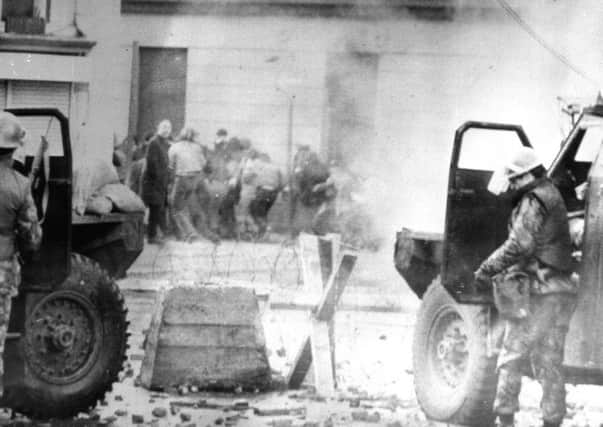Bloody Sunday police '˜must probe RUC murders'


East Londonderry MP Gregory Campbell was speaking after it was revealed that police interviews of ex-Parachute Regiment soldiers suspected of the 13 killings on Bloody Sunday are set to recommence next month.
Mr Campbell said: “Almost £200 million has been spent investigating the events of January 30, 1972.
Advertisement
Hide AdAdvertisement
Hide Ad“Two police officers were in a patrol car on part of the route of the march three days before Bloody Sunday and were murdered by the Provisional IRA.
“The police need to confirm if they are questioning anyone in relation to that double murder or the other murders that occurred around the same time.
“There was also a Thompson sub-machine gun there that day. Are they following any lines of inquiry against individuals who were not police or Army personnel in Londonderry at that time?”
Relatives of those shot dead on Bloody Sunday have received a letter from the PSNI informing them of the next step in the process.
Advertisement
Hide AdAdvertisement
Hide AdThe news comes as preparations are well underway to commemorate the 44th anniversary of the shootings this weekend.
The process of interviewing the soldiers stalled at the end of last year when seven of those wanted for questioning lodged objections at the High Court in London.
A judicial review then determined that the soldiers would voluntarily present themselves at police stations in England and would not have to travel to Northern Ireland.